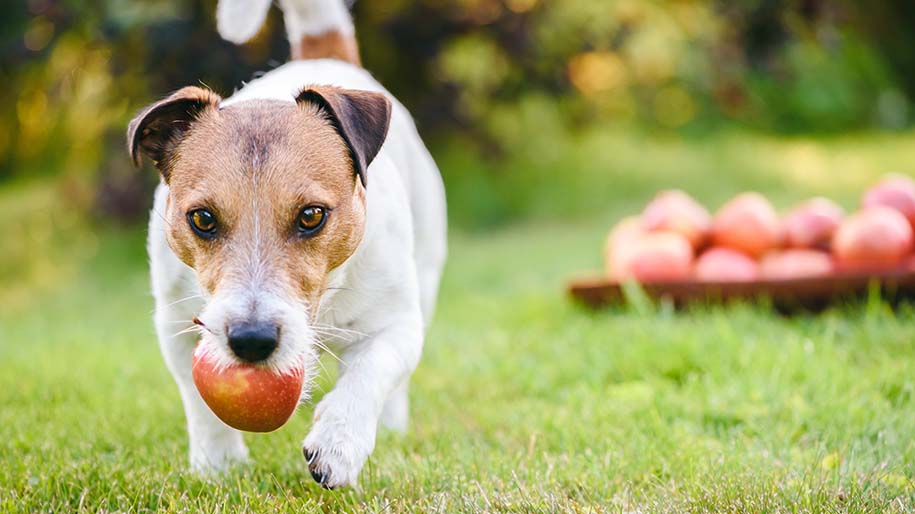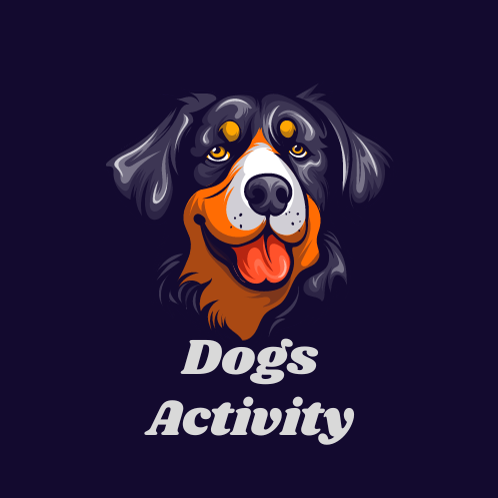
Apples are one of the most popular fruits worldwide and are known for their crisp texture, natural sweetness, and nutritional value. As a dog owner, you may have wondered, “Can dogs have apples?” This article will explore the benefits and potential risks of feeding apples to your four-legged friend, and provide you with all the information you need to make informed decisions about your dog’s diet.
Can Dogs Have Apples?
The answer is a resounding yes, dogs can indeed eat apples! In moderation, apples can be a healthy and tasty addition to your dog’s diet. Apples are not only low in calories but also packed with essential nutrients that can benefit your furry friend in various ways. However, there are a few caveats and guidelines to keep in mind when offering apples to your dog.
The Nutritional Value of Apples
Apples are a rich source of various nutrients that can be beneficial for dogs. Here’s a breakdown of the key components of apples:
- Dietary Fiber: Apples are a good source of dietary fiber, which can aid in digestive health and regulate bowel movements. The fiber content in apples can be especially helpful if your dog experiences occasional constipation or diarrhea.
- Vitamins: Apples contain vitamins A and C, which are important for maintaining your dog’s overall health. Vitamin A supports healthy vision, skin, and coat, while vitamin C acts as an antioxidant, helping to protect cells from damage.
- Minerals: Apples contain essential minerals such as potassium and calcium, which are important for muscle function, bone health, and overall well-being.
- Natural Sweetness: The natural sugars found in apples are relatively low in calories, making them a safe treat option for dogs when given in moderation.
Health Benefits of Apples for Dogs
Feeding your dog small slices of fresh apples can offer various health benefits. These benefits include:
- Improved Digestion: The fiber in apples can help regulate your dog’s digestive system, aiding in both constipation and diarrhea.
- Weight Management: Apples make for a low-calorie and nutritious treat, which can be useful for dogs trying to maintain a healthy weight.
- Fresh Breath: Chewing on apple slices can help reduce bad breath in dogs. The natural crunchiness can help remove plaque and food particles from your dog’s teeth, promoting dental health.
- Skin and Coat Health: The vitamins in apples, particularly vitamin A, can contribute to a healthy, shiny coat and supple skin in dogs.
- Antioxidant Properties: Apples contain antioxidants like vitamin C, which can help protect your dog’s cells from damage and support their immune system.
- Hydration: Apples have a high water content, contributing to your dog’s hydration, especially on hot days.
Moderation is Key
While apples are generally safe for dogs to eat, it’s crucial to exercise moderation. Feeding your dog too many apples can lead to digestive issues due to the fruit’s high fiber content. Overindulgence in apples may result in diarrhea, upset stomach, or gas. To avoid such issues, cut apples into bite-sized pieces, and limit your dog to just a few slices as an occasional treat.
Always remove the apple core and seeds before feeding them to your dog. Apple seeds contain a compound called amygdalin, which releases cyanide when broken down. In small quantities, apple seeds are unlikely to harm your dog, but it’s best to play it safe and remove them.
Varieties of Apples for Dogs
When sharing apples with your dog, consider which variety to use. Some apples are sweeter and juicier, while others are tart and crisp. Dogs often prefer sweeter apple varieties such as Fuji, Honeycrisp, and Gala. However, always keep in mind your dog’s preferences, as some may enjoy the tartness of a Granny Smith apple.
Avoid feeding your dog apples that are spoiled, moldy, or have a mushy texture. Only serve fresh, crisp apple slices to ensure your dog receives the full nutritional benefits without the risk of ingesting harmful bacteria.
Preparing Apples for Your Dog
When offering apples to your dog, it’s essential to take some precautions. Here’s how to prepare apples for your furry friend:
- Wash Thoroughly: Rinse the apple thoroughly to remove any pesticides or residues. Organic apples can be a good choice to minimize exposure to chemicals.
- Remove the Core and Seeds: Cut the apple into slices, making sure to remove the core and seeds. As mentioned earlier, apple seeds contain amygdalin, which can release cyanide when chewed.
- Slice or Dice: Cut the apple into small, bite-sized pieces to make it easier for your dog to chew and digest.
- Supervise Your Dog: When giving your dog apple slices, it’s a good idea to supervise them, especially if it’s their first time trying this treat. This allows you to ensure they’re comfortable with the texture and don’t have any adverse reactions.
- Monitor for Allergies: While allergies to apples are rare in dogs, it’s always a good idea to monitor your pet for any adverse reactions the first time you introduce a new food. Signs of an allergic reaction may include itching, hives, swelling, or gastrointestinal upset.
Potential Risks of Feeding Apples to Dogs
While apples are generally safe for dogs, there are a few potential risks to be aware of:
- Choking Hazard: Always cut apples into small pieces to prevent choking. Apples are hard and can be challenging for dogs to break down if served in large chunks.
- Dental Health: While apples can help with dental health by removing plaque, they are no substitute for regular teeth cleaning. Continue to brush your dog’s teeth and provide dental chews or toys as part of their dental care routine.
- Overconsumption: Feeding your dog excessive amounts of apples can lead to digestive issues, such as diarrhea or gas. It’s essential to keep portions small and monitor your dog’s response to this treat.
- Allergies: Although apple allergies are rare in dogs, they can still occur. Always watch for signs of an allergic reaction when introducing a new food to your pet.
- Cyanide Risk: While it’s unlikely that a dog would consume enough apple seeds to pose a cyanide risk, it’s still best to remove the seeds to be safe.
Conclusion
In summary, dogs can indeed enjoy apples as a healthy and tasty treat. Apples offer various nutritional benefits, including dietary fiber, vitamins, minerals, and antioxidants. These can contribute to improved digestion, weight management, fresh breath, skin and coat health, and hydration for your furry friend.
However, it’s crucial to feed apples in moderation, as overconsumption can lead to digestive issues. Always remove the core and seeds from apples before offering them to your dog, and cut the fruit into small, manageable pieces to prevent choking. Additionally, keep an eye out for any signs of allergies or adverse reactions when introducing a new food.
By following these guidelines, you can safely incorporate apples into your dog’s diet as an occasional, healthy, and delicious treat. Remember that your dog’s overall diet should consist primarily of balanced, high-quality dog food to meet their nutritional needs.



